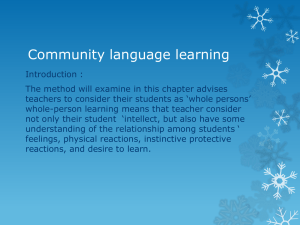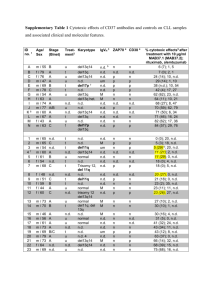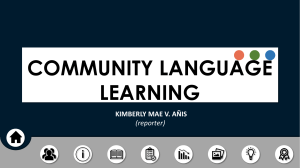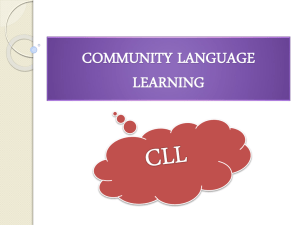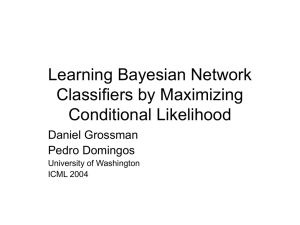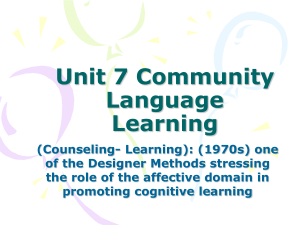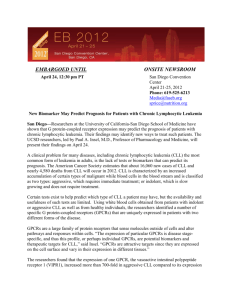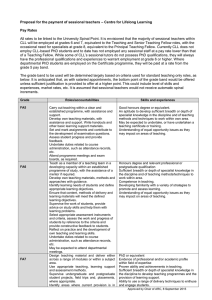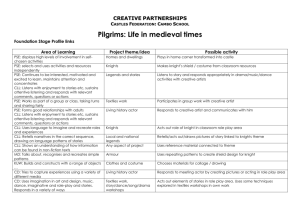Community Language learning GARY
advertisement
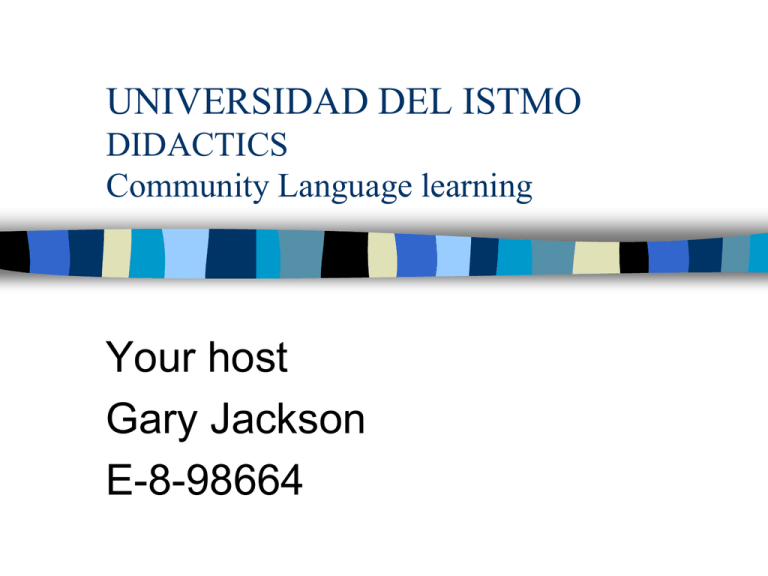
UNIVERSIDAD DEL ISTMO DIDACTICS Community Language learning Your host Gary Jackson E-8-98664 The theory the basic principle of the methodology is to establish interpersonal relationships between the teacher and students to facilitate learning. The who Community language learning theory was introduced by psychologist, Charles A. Curran. The Rationale Students disassociate language learning with risk taking As opposed to learners who memorize vocabulary and grammar rules without being able to handle a conversation, CLL allows students to practice the structure or characteristic patterning of sentences and conversations Learning, like living, is a social affair and can come about only from social interaction Step 1 The students first establish interpersonal relationships in their native language while the teacher focuses their attention on students’ needs. Step 2 The students are seated in a circle with the teacher seated just outside the circle. The students take turns speaking in their native language and the teacher serves as a translator Step 3 A student will speak on a topic of their choosing, the teacher will translate, and the student repeats the translation. Step4 The conversations can be taped and listened to later to glean information inductively about the new language. Step 5 The teacher can also be more directive and explain linguistic rules or vocabulary. Conclusion Virtually no one uses CLL exclusively today because it is too restrictive in nature. However, the theoretical tenets of CLL, such as student-centred participation, discovery learning and the development of student independence, can be creatively applied to any language program Any questions
